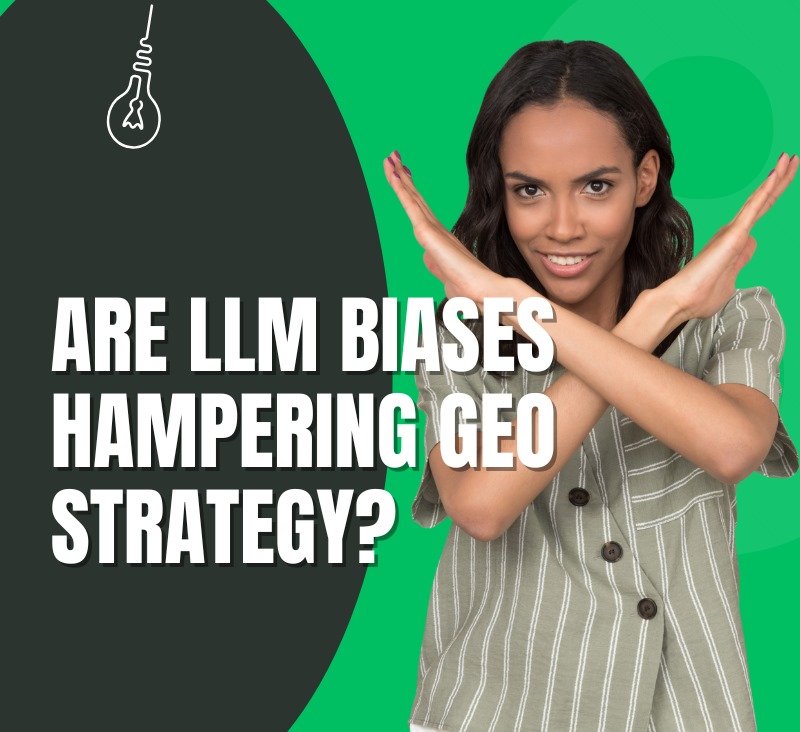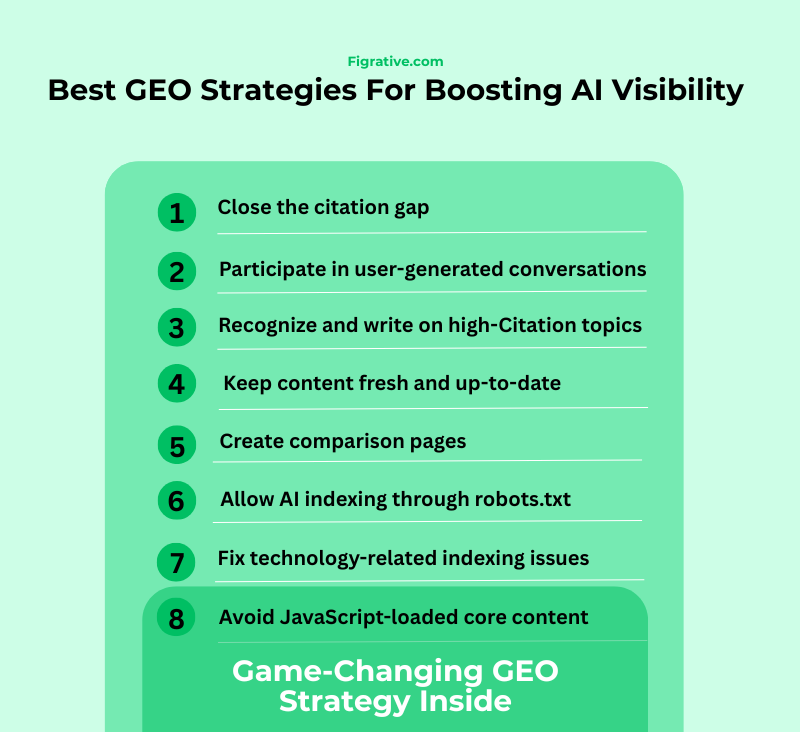In the rapidly evolving landscape of digital marketing and search technology, a new frontier has emerged: Generative Engine Optimization (GEO). As AI continues to reshape the way users interact with content, businesses must adapt. GEO is becoming one of the most crucial strategies for staying visible, relevant, and competitive in a world increasingly influenced by generative AI models.
What is Generative Engine Optimization (GEO)?
Generative Engine Optimization (GEO) refers to the practice of optimizing digital content to perform well within generative AI-driven search engines and platforms.
Unlike traditional SEO, where the goal is to rank web pages higher on search engine results pages (SERPs), GEO focuses on ensuring your content is discovered, cited, and recommended by AI chatbots, search assistants, and generative models such as:
- Google’s Search Generative Experience (SGE)
- Bing Chat (powered by GPT)
- Perplexity AI
- ChatGPT Browsing
- You.com
- Other AI-driven content aggregation or Q&A tools
In short, GEO ensures that your content is the information source AI engines use when generating answers for users.

Why is GEO Becoming Important?
The way people search is changing. Traditional search engines rely on links to websites for users to click. However, Generative AI search engines often provide direct answers by summarizing information from multiple sources, meaning users may never click on an actual website.This shift presents new challenges:
- Less organic traffic from traditional SEO alone.
- More competition is to be included in AI-generated results.
- Higher value is placed on being cited or referenced by AI engines.
If your content isn’t optimized for generative engines, you risk losing visibility as more users rely on AI for quick, synthesized answers instead of browsing through links. GEO helps you adapt and ensure your brand, product, or message stays part of the conversation.
How Does Generative Engine Optimization Work?
While traditional SEO and GEO share some similarities, GEO focuses on optimizing for AI understanding, summarization, and citation rather than just rankings.
Here’s how GEO works:
1. Focus on Semantic Depth and Clarity
AI models don’t just look for keywords; they interpret meaning. Content must be:
- Rich in context
- Well-structured
- Clear and authoritative
Using natural language, answering questions directly, and offering comprehensive explanations help AI engines recognize and pull from your content.
2. Use Structured Data and Schema Markup
Adding structured data (e.g., FAQ schema, How-To schema, Product schema) helps AI better understand the context and relevance of your content, making it more likely to be cited in generative answers.
3. Build Topical Authority
AI engines prioritize trusted, authoritative sources. Publishing deep, comprehensive, and interconnected content across your niche builds your topical authority, making your site a preferred source for AI citations.
4. Prioritize Content for AI Summarization
Create content that’s:
- Directly answer-focused (e.g., FAQs, guides, clear subheadings)
- Highly organized (e.g., bullet points, concise paragraphs)
- Fact-based (e.g., citing credible sources)
The easier it is for AI to extract useful, verifiable information, the more likely your content will be included.
5. Leverage Freshness and Real-Time Updates
Many generative engines prioritize fresh information. Frequently updating content, adding new insights, and maintaining current data can improve your visibility in AI outputs.

Key Differences Between SEO and GEO
| Aspect | Traditional SEO | Generative Engine Optimization (GEO) |
|---|---|---|
| Main Objective | Rank higher on SERPs | Be cited or referenced in AI-generated results |
| Focus | Keywords, backlinks, page speed | Semantic clarity, authority, and answer precision |
| Searcher Action | Clicking through to the website | Consuming AI-summarized content |
| Optimization Techniques | Technical SEO, link building, metadata | Structured data, semantic writing, topical authority |
| Visibility | Search results pages | Direct AI responses and conversational search |
How to Build a Strong GEO Strategy
Mastering Generative Engine Optimization requires a shift in how you create, structure, and promote your content. Here’s a step-by-step guide to build an effective GEO strategy:
1. Perform Audience and Query Research
Understand what questions your target audience is asking in your niche. Use tools like:
- AlsoAsked
- Answer the Public
- People Also Ask (Google feature)
- ChatGPT prompts
- Perplexity search trends
Focus on question-driven content since AI engines prioritize answering user queries directly.
2. Create High-Quality, Authoritative Content
Your content should:
- Thoroughly address topics
- Be factually correct and well-researched
- Include clear headings (H1, H2, H3)
- Offer definitions, explanations, and real-world examples
- Incorporate internal links to related topics (build a content cluster)
3. Implement Schema Markup
Structured data helps AI accurately interpret your content. Prioritize adding:
- FAQ Schema
- How-To Schema
- Review Schema
- Article/Blog Schema
- Local Business Schema (for local GEO)
4. Optimize for Brand Mentions and E-A-T
Even when AI doesn’t link back to your website, brand mentions matter. Focus on E-A-T principles:
- Expertise: Show you know your field.
- Authoritativeness: Get mentions on reputable websites.
- Trustworthiness: Maintain transparency, fact-checking, and secure websites.
Citations and mentions will build your brand’s AI authority profile.
5. Promote Content Across Channels
AI models train and update using a wide swath of the internet.
Promote your content via:
- Blogs
- Podcasts
- YouTube
- Social media
- News features
- Forums (Reddit, Quora)
Omnichannel presence boosts your digital footprint and increases the chances of your content being learned and referenced by AI.
Examples of Content Ideal for GEO
- Comprehensive “how-to” guides
- In-depth industry analysis reports
- Product comparison articles
- Definitions and explainer pieces
- FAQs and answer-driven blogs
- Case studies and success stories
- Expert opinion and thought leadership articles
Challenges of GEO
While the promise of GEO is exciting, it does present challenges:
- No Direct Attribution: Many AI outputs summarize without linking directly to the source, making ROI more challenging to track.
- Fast Evolution: AI models and search engines are evolving rapidly, requiring continuous updates and adaptation.
- Competition for Attention: With millions of sources available, standing out demands truly high-value, differentiated content.
- Content Theft Risks: Without links, protecting content ownership becomes complex.
Despite these, businesses that adapt early will secure a long-term advantage.
The Future of GEO
Generative Engine Optimization is still in its early stages, but is not a passing trend. As AI search and answer engines improve, we can expect:
- More AI-generated search experiences (Google, Bing, Amazon, and social platforms)
- Increased importance of semantic and structured content
- Greater emphasis on real-world brand authority and citations
- New attribution technologies to better track mentions in AI responses
Forward-thinking businesses are already shifting their focus to GEO, alongside traditional SEO, to future-proof their content strategies.
Final Thoughts: Embrace GEO Now or Fall Behind
Generative Engine Optimization (GEO) represents the future of online visibility. By learning how to create content AI engines love — and ensuring your brand becomes part of the datasets and conversational outputs users trust — you position yourself for sustainable growth in the coming years.If you want your business to thrive in the AI era, now is the time to invest in GEO alongside your current SEO efforts.
The AI revolution is reshaping how information is found and consumed — and with the right strategy, your business can lead the change rather than be left behind. Looking to enhance your SEO strategy? Contact our team today to get started!











